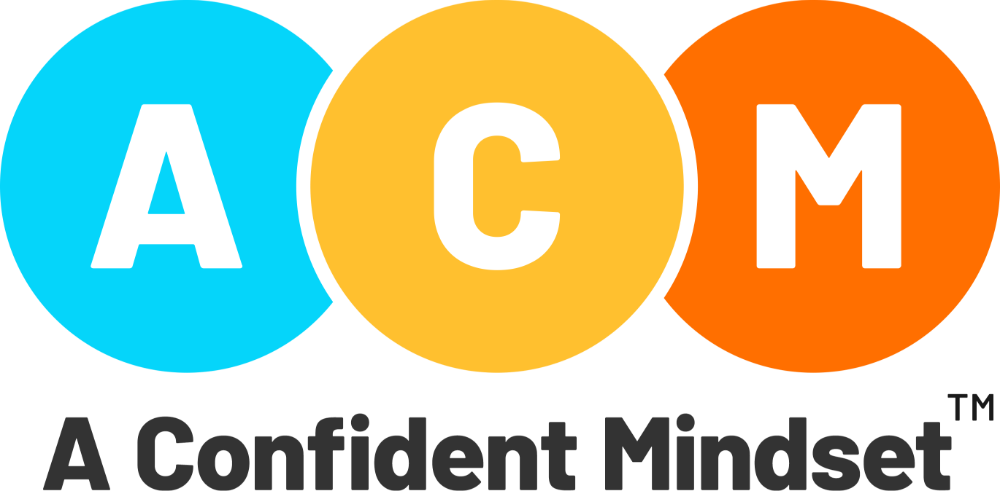
The Difference Between Self-Esteem and Confidence
Nov 19, 2024Self-esteem and confidence are often used interchangeably, but they are uniquely different. Schools, homes, or communities sometimes use both words loosely without clearly distinguishing between them. Well-meaning adults, parents, and mentors should learn about both terms to understand the difference between self-esteem and confidence. Self-esteem is all about self-respect, pride, dignity, value, and morale. Confidence leans into trust, belief, faith, and conviction.
While self-esteem can impact a child's overall sense of worth, developing confidence is essential for their growth. While it’s true that self-esteem and confidence can overlap and affect one another, it’s inaccurate to say someone can’t develop confidence if their self-esteem is low. At ACM, we believe that a mindset of confidence can, in fact, be practiced and developed over time, regardless of where someone’s self-esteem starts.
Defining Self-Esteem and Confidence
Firstly, it is vital to examine the meaning associated with each term. A simple Google search reveals different perspectives on meanings regarding self-esteem and confidence.
What is Self-Esteem?
Self-esteem involves self-respect, pride, dignity, value, and morale. These words describe the inner view of a person's value. Defined self-esteem refers to a person's value in themself, which lies closely with questions such as “Am I worthy?” and “Am I deserving of love and respect?” It involves an inward - and sometimes complicated - connection with one's self; thus, it relates to the perception of one's worth.
If a child suffers from low self-esteem, he will exhibit some of the following:
Negative Self-Image: The child may develop a negative self-image and feel useless or undeserving.
Academic Challenges: This is because the student might have low academic self-efficacy, which causes difficulties at school.
Social Withdrawal: Low self-esteem causes children and adolescents to avoid social relations, so they will not easily make friends.
Increased Anxiety and Depression: Children lacking self-esteem might start feeling anxious and depressed.
Risk of Behavioral Problems: Maybe they misbehave because of frustration or openly disobey to get attention.
Difficulty Setting Goals: They may not make efforts to overcome them and may not try personal development.
Understanding the Term ‘Confidence’
On the other hand, ACM defines confidence as "a feeling of optimism and trust in your ability.” The term ‘confidence’ is more closely related to a person's trust in their ability to execute tasks or succeed in specific areas.
Confidence is never based on how people regard themselves but on believing that, with practice and effort, they can improve and grow.
The Interconnection Between Self-Esteem and Confidence
Although self-esteem and confidence are two separate concepts, they do have aspects that overlap. A person with low self-esteem may still feel confident in certain skills or tasks. Highly skilled professionals, such as doctors, lawyers, or business owners, may possess strong confidence in their work.
However, despite this confidence in their professional abilities, they may still struggle with low self-esteem in their personal lives. This is how self-esteem and confidence are interconnected.
This distinction underscores that confidence is not dependent on self-esteem. Confidence can be built and strengthened in specific areas of life, even if a person’s overall sense of self-worth is fragile. Some people come to work with confidence in their careers or their areas of expertise, but they lack confidence in basic aspects of their humanity. This implies confidence is easier to nurture and grow than self-esteem because confidence is more entangled with personal worth.
The Importance of Distinguishing Self-Esteem and Confidence
When one is associated with a child's developmental process, it is believed that the distinction between self-esteem and confidence is essential. They are both movable and changeable, but the processes in which they develop are different.
The most important thing about confidence is that it can be explicitly taught and systematically enhanced. For example, when a child starts to learn a new instrument or sport, they may not feel confident right away. However, with a mindset of confidence, they recognize that with consistent practice, they will progress. It helps the child's belief to evolve from skill-based belief building despite low self-esteem.
All well-meaning adults should recognize that confidence is built in each child and that the path to achieving confidence should be provided to all children. Confidence can be learned and developed through deliberate practice and education, which may enable children to believe in their abilities and development. Conversely, self-esteem stems from a child's overall relationship with themselves and their perception of their own worth.
Importance of Confidence for a Child's Development
Fosters Resilience: The confident child can more easily recover from mishaps, setbacks, and challenges.
Encourages Exploration: Confidence allows children to experiment with new things and to interact with the world.
Enhances Learning: Confident children are more likely to be enthusiastic about participation and academic risks, exhibiting better learning outcomes.
Builds Healthy Relationships: Confidence building allows a child to socialize, build friendships, and communicate effectively.
Improves Self-Esteem: Strong confidence is developed with a positive sense of self and acceptability.
Promotes Independence: Confident children will likely take up Decision-making and responsibility matters.
Can you be confident without self-esteem?
Yes, it is possible to exhibit confidence without robust self-esteem. A person may feel capable in specific situations, allowing them to perform tasks successfully, yet still struggle with overall self-worth. This situation often leads to an inconsistency in self-perception.
How do you build confidence and self-esteem?
Building confidence and self-esteem involves setting realistic goals, celebrating achievements, engaging in positive self-talk, embracing new challenges, and seeking support from friends and family. Practicing self-compassion and reflecting on personal strengths also fosters a healthier self-image and resilience.
Conclusion
In conclusion, while self-esteem and confidence are often used interchangeably, they are distinct concepts with unique qualities. Self-esteem and confidence should be familiar terms to every well-meaning adult; they need to know how low self-esteem can affect a child and why confidence is necessary for them to develop.
Moreover, knowledge of the interrelation between self-esteem and confidence and their significance in understanding the distinction between confidence and self-esteem helps understand the topic.
At A Confident Mindset™ (ACM), we ensure well-meaning adults, mentors, and parents learn how to enhance children’s confidence through our specially designed programs.

